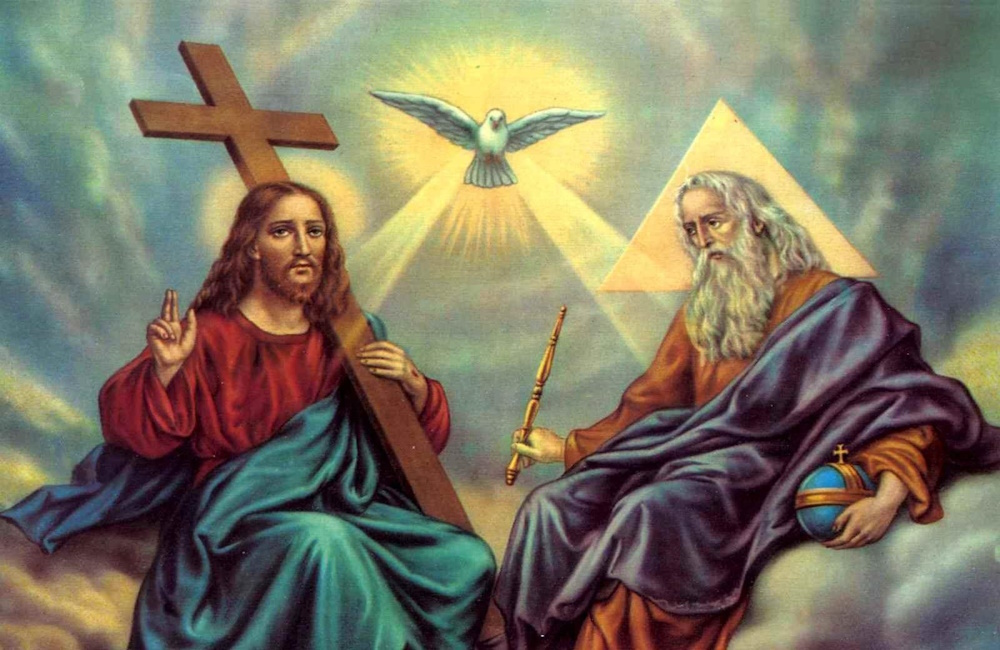The Trinity from a Christian Perspective
The doctrine of the Trinity is a foundational belief in Christianity, describing God as one being who exists in three distinct persons: the Father, the Son (Jesus Christ), and the Holy Spirit. These three persons are not separate gods; instead, they are coequal, coeternal, and of the same essence, meaning they are fully and completely God, yet distinct in their personhood.
Christians believe that God the Father is the creator and sustainer of the universe. God the Son, Jesus Christ, became human, lived among people, and through His life, death, and resurrection, provided a way for humanity to be reconciled with God. God the Holy Spirit is seen as God’s presence in the world today, offering guidance, comfort, and empowerment to believers.
While the term “Trinity” is not explicitly mentioned in the Bible, Christians believe the concept is revealed through Scripture. For instance, in the Gospel of Matthew, Jesus instructs His disciples to baptize “in the name of the Father and of the Son and of the Holy Spirit.” In the Gospel of John, Jesus is described as the Word who was both with God and was God. Additionally, the Holy Spirit is referred to as God’s Spirit in several passages, highlighting the belief in the triune nature of God. The Trinity is considered a mystery of faith—an aspect of divine truth that surpasses full human understanding but is embraced as central to Christian doctrine.
The Muslim Perspective and Rejection of the Trinity
In Islam, the belief in God’s oneness is absolute, encapsulated in the doctrine of Tawhid, which emphasizes that God is singular, without partners, divisions, or equals. The idea that God could exist as more than one person is seen as fundamentally incompatible with the teachings of the Quran, which asserts that God is one and unique. Associating any partners or equals with God is regarded as shirk, the gravest sin in Islam, as outlined in the Quran.
From a Muslim perspective, the Trinity is viewed as a form of polytheism or as a misunderstanding of the true nature of God. While Muslims revere Jesus (known as Isa in Arabic) as a prophet, they reject the notion of his divinity or that he is the Son of God. The Quran explicitly denies both the divinity of Jesus and the concept of the Trinity, reinforcing the belief in God’s indivisible oneness.
In essence, while Christians see the Trinity as a profound mystery and a core component of their understanding of God, Muslims reject it as incompatible with the fundamental Islamic belief in the oneness of God. This theological difference is one of the key distinctions between Christianity and Islam.
Conclusion
The Christian doctrine of the Trinity and the Islamic doctrine of Tawhid represent two fundamentally different understandings of God’s nature. For Christians, the Trinity is a profound mystery that encapsulates the complexity and richness of God’s relationship with humanity. It affirms that God is one being who reveals Himself in three distinct persons—Father, Son, and Holy Spirit—each fully and equally divine. This belief is central to the Christian faith, shaping not only the understanding of God but also the practices of worship, prayer, and community life. The Trinity is seen as a way of understanding the depth of God’s love and the unique roles each person of the Godhead plays in the story of salvation.
On the other hand, Islam’s strict monotheism, as expressed in the doctrine of Tawhid, firmly rejects any division or multiplicity within the nature of God. For Muslims, the oneness of God is the most fundamental and uncompromising aspect of their faith. The idea of the Trinity is perceived as a misunderstanding of God’s true nature and a deviation from the pure monotheism that Islam upholds. The Quran explicitly denies the divinity of Jesus and the concept of the Trinity, reinforcing the belief that God is absolutely singular, without partners or equals.
This divergence in belief has profound implications for how Christians and Muslims view God, prophets, and the nature of divine revelation. While Christians see the Trinity as essential to their faith and understanding of God’s work in the world, Muslims view it as incompatible with the principle of God’s absolute oneness. This theological difference underscores the broader distinctions between Christianity and Islam, shaping not only religious practices but also the ways in which followers of each faith relate to one another and to the broader world.
